Messages in the Parables of the Talents/Minas
The parables of the talents/minas/bags of gold/coins are technically two different parables with very similar settings and contexts. They have the same message held within them. Depending on the version of the Bible you are reading, the name of the parable changes. The Parables of the Talents/Minas/Bags of Gold/Coins can be found in Matthew 25:14-30 and Luke 19:11-27. Talents and minas are names used to represent a type of money used in ancient times.
Summaries and Differences
In Matthew and Luke, Jesus tells a parable of a man who goes on a journey. Before leaving, the man entrusts his servants with some money and instructs them to invest and manage the money while he is absent. In each account, some of the servants invest the money and gain an income, some more than others. However, there is one servant in each story that hides away the money given to them and keeps it safely tucked away until the man comes back. When the man returns, the servants are to report back on how well they managed the money. The man is very pleased with the servants who have multiplied their money, yet he gets very upset with the men who did nothing with what he had given them.
The two accounts of this parable are very similar with only minor differences. One of the differences between the parables is in Luke, the man who went on a journey was of noble birth and we went on a journey to be appointed king. Another major difference is the amount of money the man gives his servants. In Matthew, one servant receives 5 bags of gold, another 2 bags, and the third gets 1 bag. In Luke, 10 servants each received 10 minas. The last difference is Jesus told the parables on two separate occasions. The parable in Matthew is a part of the lessons taught by Jesus on the Mount of Olives, whereas the parable in Luke is following the incident with Zacchaeus the tax collector.
Symbolism
The man who goes on a journey is Jesus
The servants are His Disciples (us)
The journey is the ascension of Christ
The return is the return of Christ
Lessons in the Parables
We are His Servants
We are God’s servants, and with that comes the responsibility of growing our faith by allowing Him to use us for His work. To help us get His work done…
God Provides Each of Us with Gifts
Everything we have in life is a gift from God. Each of our gifts can be vastly different. Maybe someone has a beautiful singing voice, and someone else is exceptionally skilled with numbers. Some people have been blessed with great financial wealth, others with physical health. No matter what you or someone else has, it has all been provided by God. It is important to remember that…
We are not all created equally
God has given each of us different skills, talents, expertise, monetary advantages, and experiences and each manifests with varying extents and degrees. God does this because we are each unique and not created equally. Which is why…
God will not give us more than we can handle
Because our gifts are different and distinct from one another, God will not give us more than we can handle. Our gifts from God will help us get through any specific hardships we will endure in life. And…
We are Expected to Use What We Have Been Given to the Best of our Abilities
God expects us all to use our gifts from Him to contribute to the good of mankind, and we all have something to contribute. Yet, because our gifts are catered to fit the individual, God doesn’t expect perfection. He recognizes that someone may technically do better at something than another. He wants us to use our gifts to the best of our ability. Which is why…
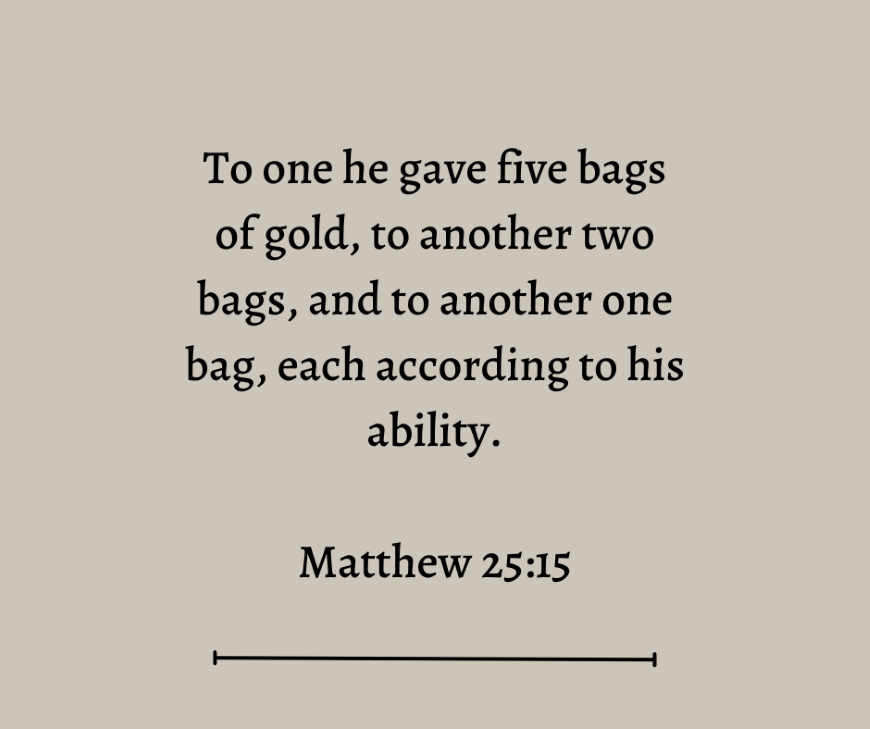 Your faith is proven by your works, not by your accomplishments
Your faith is proven by your works, not by your accomplishments
Attending worship, prayer, and studying your Bible are all excellent examples of habits Christians should incorporate into their life. But that isn’t all. Being a Christian involves constantly growing in your faith, living humbly, caring and helping those in need, and working toward living a Christlike life. Utilizing your gifts to help you stay on the path of living righteously will help you grow closer to Him. That is why…
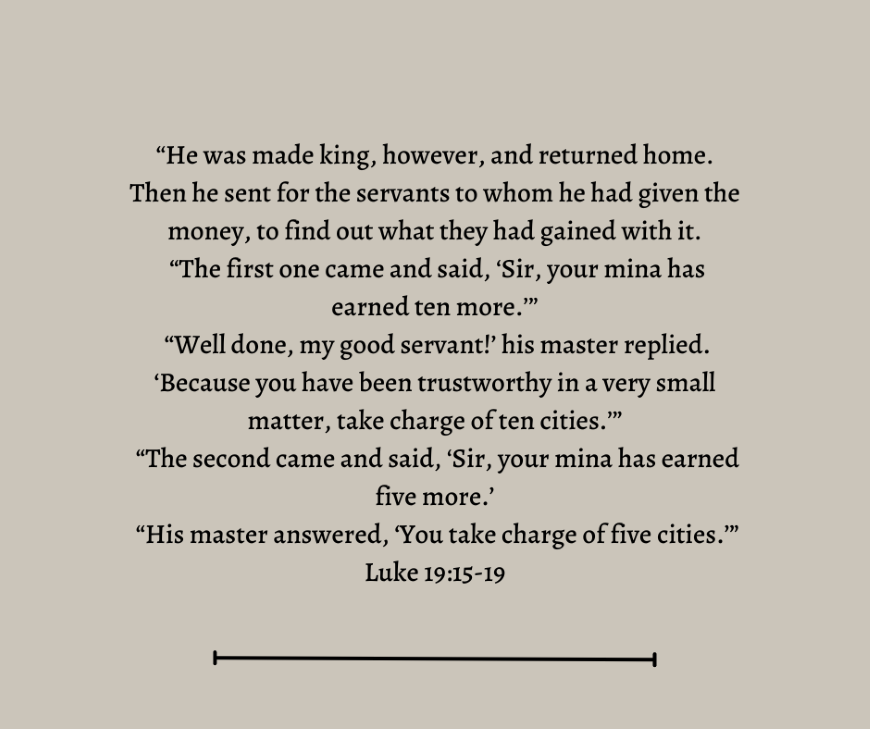 The righteous will be greatly rewarded
The righteous will be greatly rewarded
When we use our gifts for good, God will continue to bless us. It is important to remember that…
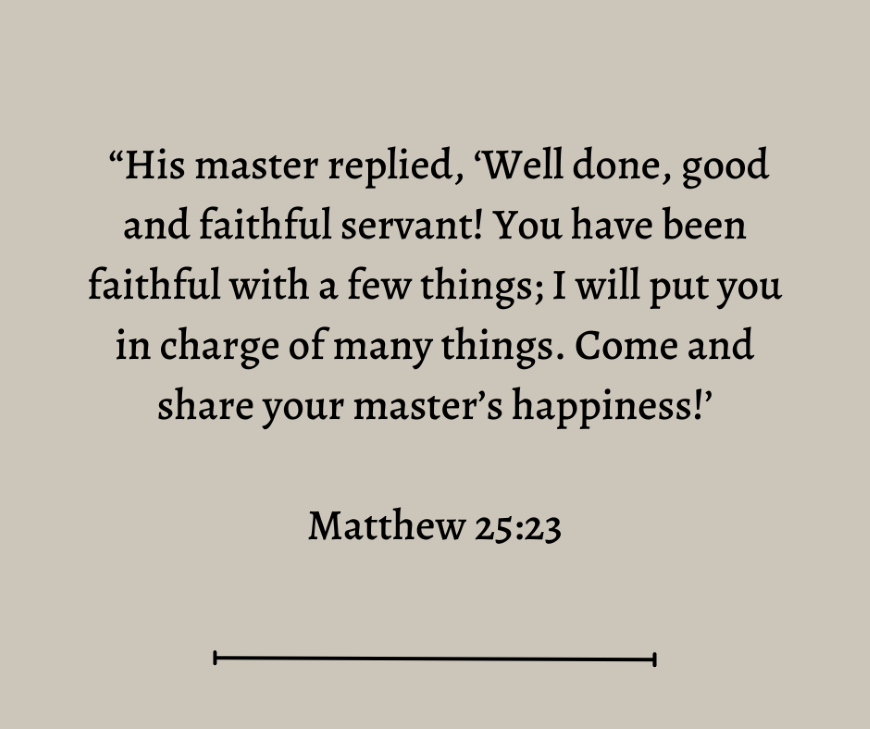 When more is given more is expected
When more is given more is expected
As we continue to use our gifts and strengthen our relationship with God, we are entrusted with more. As we are given more, God expects us to continue to use the added blessings to further our work in Him. Remember…
You are responsible for your inaction
Through each gift, God has provided us with a way to grow ourselves. It is up to us to decide how we use our gifts if we use our gifts, and when we use our gifts. All too often it can be easier to blame others for our lack of inaction. Making excuses and putting the blame elsewhere does not slide with God. He is all-knowing and…
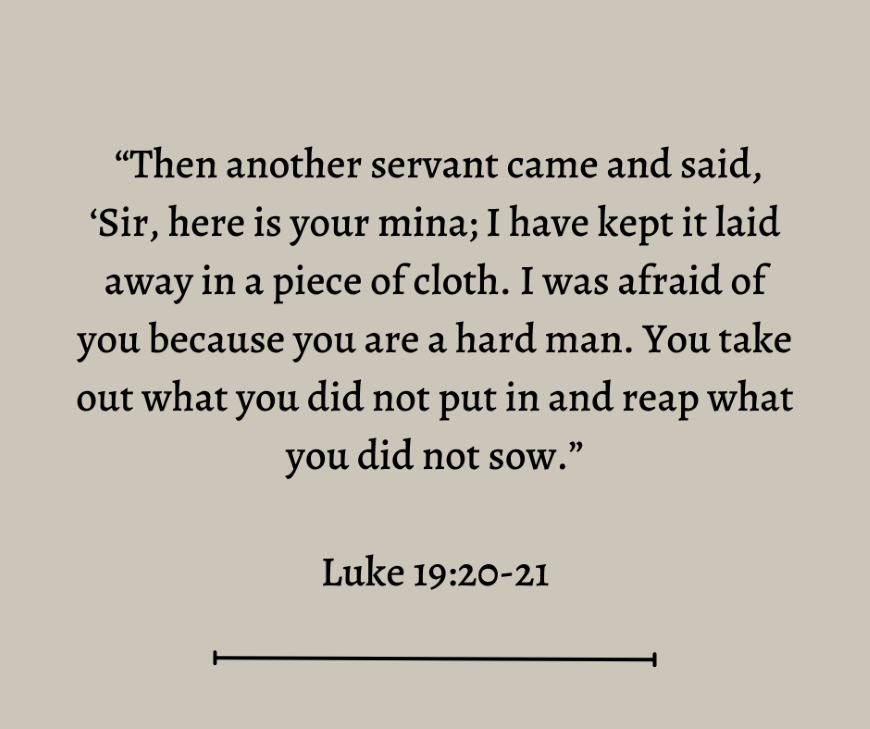 We will be held accountable
We will be held accountable
Fear, laziness, and lack of preparedness are not viable reasons to neglect using what God has given us. God doesn’t want us to hide away, misuse, or neglect our gifts. He gave them to us for a reason. He knows that we can use them for growing our faith and living a more Christlike life. If we don’t, we will be held accountable. And there will be consequences…
God Will Take Back our Gifts
If we don’t use our blessings to do His work, we have proven to be untrustworthy. He will take back what He has given us.
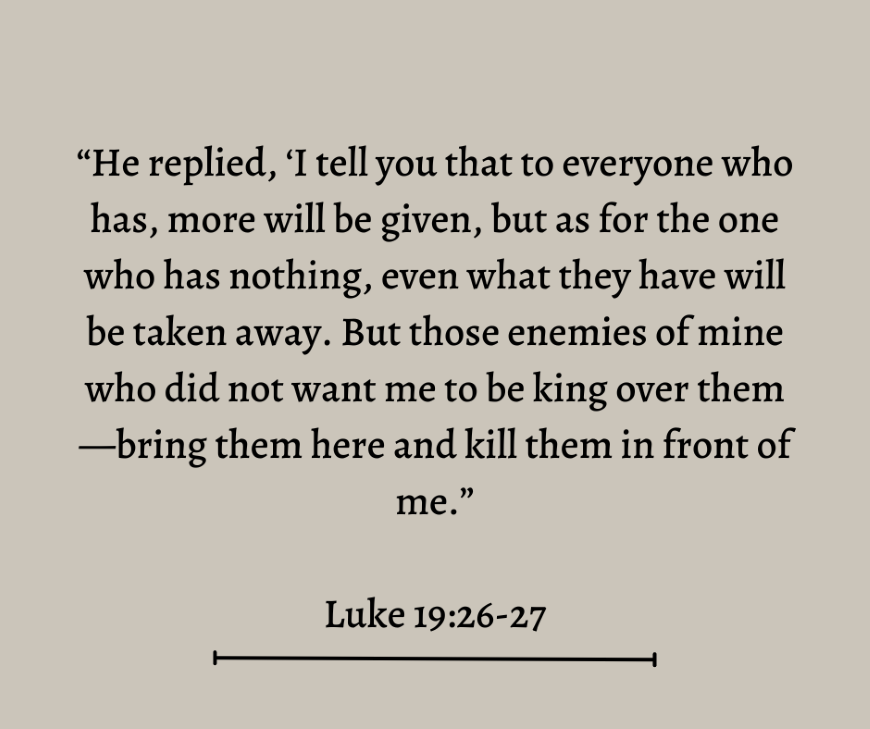 Evidently…
Evidently…
The parables of the Talents/Minas/Bags of Gold/Coins show us that God expects us to use and grow our blessings for His Glory. The more we use our gifts, the more God blesses us. Be sure to use your gifts wisely!
- Torrance Church of Christ
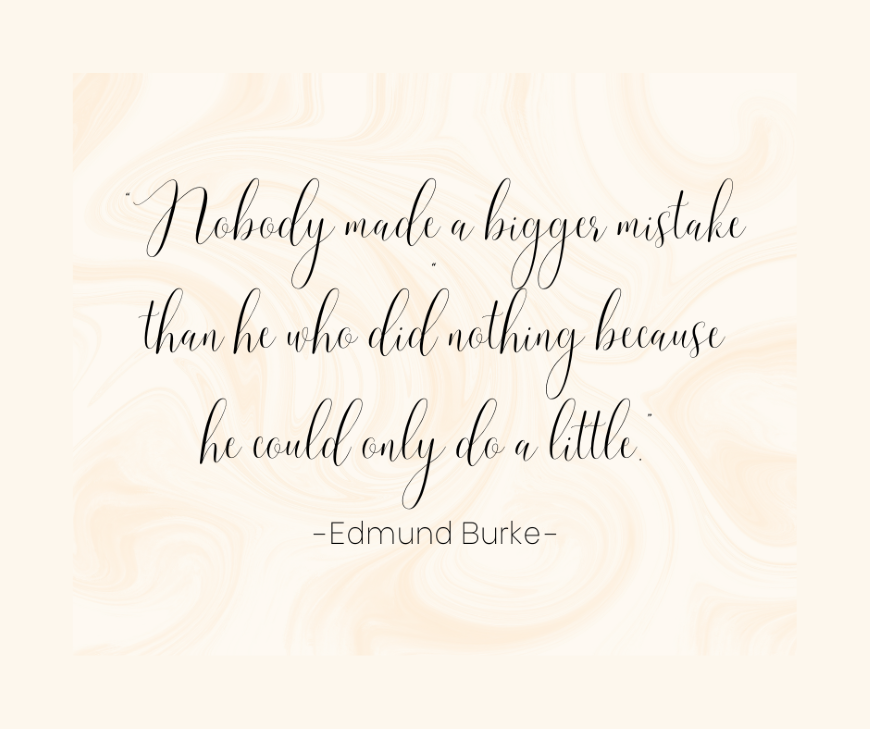 The Parables in Full:
The Parables in Full:
Matthew 25:14-30:
“Again, it will be like a man going on a journey, who called his servants and entrusted his wealth to them. To one he gave five bags of gold, to another two bags, and to another one bag, each according to his ability. Then he went on his journey. The man who had received five bags of gold went at once and put his money to work and gained five bags more. So also, the one with two bags of gold gained two more. But the man who had received one bag went off, dug a hole in the ground and hid his master’s money. “After a long time, the master of those servants returned and settled accounts with them. The man who had received five bags of gold brought the other five. ‘Master,’ he said, ‘you entrusted me with five bags of gold. See, I have gained five more.’ “His master replied, ‘Well done, good and faithful servant! You have been faithful with a few things; I will put you in charge of many things. Come and share your master’s happiness!’ “The man with two bags of gold also came. ‘Master,’ he said, ‘you entrusted me with two bags of gold; see, I have gained two more.’ “His master replied, ‘Well done, good and faithful servant! You have been faithful with a few things; I will put you in charge of many things. Come and share your master’s happiness!’ “Then the man who had received one bag of gold came. ‘Master,’ he said, ‘I knew that you are a hard man, harvesting where you have not sown and gathering where you have not scattered seed. So I was afraid and went out and hid your gold in the ground. See, here is what belongs to you.’ “His master replied, ‘You wicked, lazy servant! So you knew that I harvest where I have not sown and gather where I have not scattered seed? Well then, you should have put my money on deposit with the bankers, so that when I returned I would have received it back with interest. “‘So take the bag of gold from him and give it to the one who has ten bags. For whoever has will be given more, and they will have an abundance. Whoever does not have, even what they have will be taken from them. And throw that worthless servant outside, into the darkness, where there will be weeping and gnashing of teeth.’
___________________________________________________________________________________
Luke 19:11-27:
While they were listening to this, he went on to tell them a parable, because he was near Jerusalem and the people thought that the kingdom of God was going to appear at once. He said: “A man of noble birth went to a distant country to have himself appointed king and then to return. So he called ten of his servants and gave them ten minas. ‘Put this money to work,’ he said, ‘until I come back.’ “But his subjects hated him and sent a delegation after him to say, ‘We don’t want this man to be our king.’ “He was made king, however, and returned home. Then he sent for the servants to whom he had given the money, in order to find out what they had gained with it. “The first one came and said, ‘Sir, your mina has earned ten more.’ “‘Well done, my good servant!’ his master replied. ‘Because you have been trustworthy in a very small matter, take charge of ten cities.’ “The second came and said, ‘Sir, your mina has earned five more.’ “His master answered, ‘You take charge of five cities.’ “Then another servant came and said, ‘Sir, here is your mina; I have kept it laid away in a piece of cloth. I was afraid of you because you are a hard man. You take out what you did not put in and reap what you did not sow.’ “His master replied, ‘I will judge you by your own words, you wicked servant! You knew, did you, that I am a hard man, taking out what I did not put in, and reaping what I did not sow? Why then didn’t you put my money on deposit, so that when I came back, I could have collected it with interest?’ “Then he said to those standing by, ‘Take his mina away from him and give it to the one who has ten minas.’ “‘Sir,’ they said, ‘he already has ten!’ “He replied, ‘I tell you that to everyone who has, more will be given, but as for the one who has nothing, even what they have will be taken away. But those enemies of mine who did not want me to be king over them—bring them here and kill them in front of me.’”

